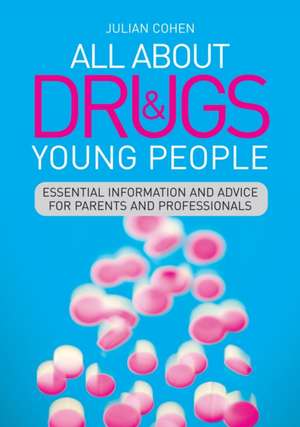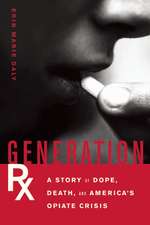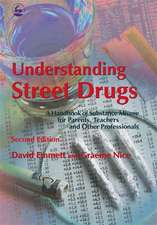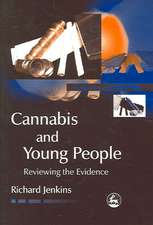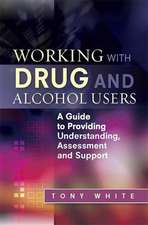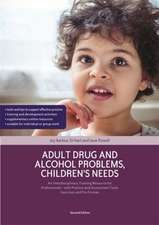All about Drugs & Young People: Essential Information and Advice for Parents and Professionals
Autor Julian Cohenen Limba Engleză Paperback – 27 mai 2014
Preț: 143.54 lei
Preț vechi: 171.97 lei
-17% Nou
Puncte Express: 215
Preț estimativ în valută:
27.47€ • 28.68$ • 22.68£
27.47€ • 28.68$ • 22.68£
Carte disponibilă
Livrare economică 26 martie-09 aprilie
Livrare express 11-15 martie pentru 58.97 lei
Preluare comenzi: 021 569.72.76
Specificații
ISBN-13: 9781849054270
ISBN-10: 1849054274
Pagini: 304
Ilustrații: black & white tables
Dimensiuni: 174 x 246 x 18 mm
Greutate: 0.5 kg
Editura: Jessica Kingsley Publishers Ltd
ISBN-10: 1849054274
Pagini: 304
Ilustrații: black & white tables
Dimensiuni: 174 x 246 x 18 mm
Greutate: 0.5 kg
Editura: Jessica Kingsley Publishers Ltd
Notă biografică
Julian Cohen is a writer, educator, counsellor and consultant who has specialised in drug and sex education work with children, young people, parents, carers and professionals for nearly 30 years. He has written extensively on drugs and young people, ranging from teaching and training packages to educational games, pamphlets and books for young people, parents and professionals. His website is www.juliancohen.org.uk.
Cuprins
Introduction. Section A. Understanding young people's drug use. A1. What are the trends in young people's drug use? A2. Why do young people use drugs and in what ways do they use them? A3. Where do young people get drugs from and how much do they cost? A4. What does all this drug language mean? A5. What are the effects and harms of drug use and how dangerous is it? A6. What does the law say? A7. Can you tell if young people are using drugs? Section B. Be prepared. B1. Be informed ? learn facts, not myths. B2. Be aware of your own use of drugs, your feelings and attitudes. B3. Be realistic about what can happen. B4. Know how to listen and relate to young people. B5. Know how to assess young people's involvement with drugs. B6. Be clear about who else you might inform and involve. B7. Negotiate sensible drug rules. B8. Be proactive about educating young people. B9. Learn basic first aid skills. B10. Know where and how to get help. Section C. Dealing with specific situations. Introduction. C1. If you suspect they are using or supplying drugs. C2. If they disclose involvement with drugs to you. C3. If they are drunk or high or lose consciousness. C4. If they have been using or supplying drugs at home or on the premises of organisations they attend. C5. If you find a drug or paraphernalia. C6. If they are arrested for a drug offence. C7. If they are using drugs and do not see any harm in it and/or will not stop. C8. If they are using drugs heavily and/or are dependent. C9. If they are violent or steal money or possessions to buy drugs. C10. If they are supplying drugs. C11. If they are experiencing difficulties or concerns because of other people's drug use. Section D. The drugs. Alcohol. Amphetamines. Caffeine. Cannabis. Cocaine and crack. Ecstasy. GHB/GBL. Heroin, other opiates and opioids. Ketamine. Khat. Legal Highs. LSD. Magic mushrooms. Mephedrone. Nitrous oxide. Poppers. Solvents. Steroids. Tobacco. Tranquillisers. Section E. Where to find out more. Helping organisations and websites. Recommended reading. References. Index.
